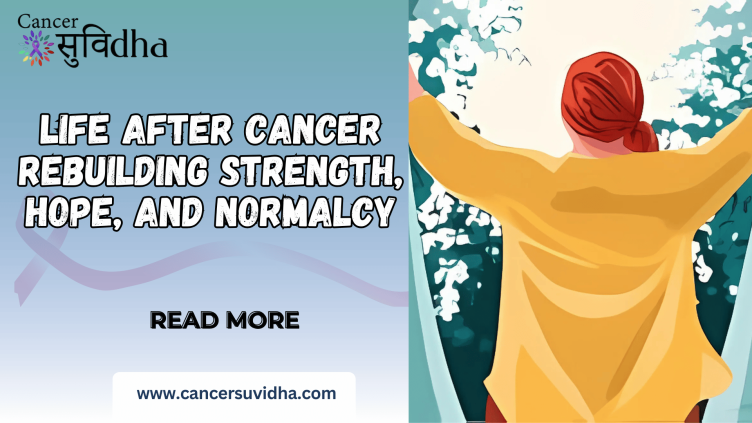Blog Details

Life After Cancer: Rebuilding Strength, Hope, and Normalcy
Completing cancer treatment is a monumental milestone, but it’s often just the beginning of a new chapter. Survivors frequently describe life after cancer as a mix of relief, uncertainty, and determination to reclaim their lives. While the physical and emotional scars may linger, this phase offers an opportunity to rebuild strength, rediscover hope, and redefine what “normal” means. In this post, we’ll explore practical steps for recovery, strategies for emotional healing, and answers to common questions survivors face.
Physical Recovery: Regaining Strength
The best cancer treatments centre in delhi, like chemotherapy, radiation, and surgery, can leave the body weakened. Rebuilding physical health is a gradual process that requires patience and self-compassion.
Start Small: Begin with gentle exercises like walking, yoga, or stretching. Consult your healthcare team to create a safe fitness plan.
Nutrition Matters: Focus on nutrient-dense foods to replenish energy. Lean proteins, whole grains, and antioxidant-rich fruits/vegetables support healing.
Manage Side Effects: Fatigue, neuropathy, or lymphedema may persist. Work with specialists (e.g., physical therapists) to address lingering issues.
Celebrate small victories—like climbing stairs without shortness of breath—to stay motivated.
Emotional Healing: Navigating the Mental Load
The end of treatment can trigger unexpected emotions: anxiety about recurrence, grief for lost time, or guilt for surviving when others didn’t.
Seek Support: Join survivor groups or connect with a therapist specializing in post-cancer care. Sharing stories reduces isolation.
Mindfulness Practices: Meditation, journaling, or art therapy can help process complex feelings.
Set Boundaries: It’s okay to say no to overwhelming social obligations. Prioritize activities that bring joy.
Survivor Insight: “I felt guilty for not being ‘grateful enough’ after remission. Therapy
taught me it’s normal to mourn the life I had before cancer.”
Reclaiming Normalcy: Redefining Your Routine
Returning to work, relationships, or hobbies may feel daunting. Adjust expectations and embrace a “new normal.”
Workplace Reintegration: Discuss flexible hours or phased returns with your employer. The Americans with Disabilities Act (ADA) protects your rights.
Rebuild Relationships: Loved ones may not understand your experience. Open communication helps bridge gaps.
Rediscover Passions: Revisit old hobbies or explore new ones. Gardening, cooking, or volunteering can reignite purpose.
Cultivating Hope: Looking Forward
Hope is a powerful motivator. Set achievable goals—whether it’s planning a trip, advocating for cancer awareness, or simply enjoying daily moments of peace.
Survivorship Plans: Many hospitals offer survivorship programs outlining long-term follow-up care and wellness strategies.
Celebrate Milestones: Marking “cancerversaries” or participating in survivorship events (e.g., Relay for Life) fosters hope.
Conclusion
Life after cancer isn’t about returning to the person you were before—it’s about embracing who you’ve become. Healing takes time, and setbacks are part of the journey. Lean on your support network, celebrate progress (no matter how small), and remember: surviving cancer is a testament to your resilience. As you rebuild, let hope guide you toward a future filled with possibility. best chemotherapy treatment in delhi
FAQ:
Q1: How long does fatigue last after treatment?
A1: Fatigue can persist for months or even years. Prioritize rest, stay hydrated, and gradually increase activity. Rule out underlying causes like anemia with your doctor.
Q2: Will my cancer come back?
A2: Fear of recurrence is common. Focus on what you can control: attending follow-up appointments, adopting healthy habits, and seeking counseling if anxiety becomes overwhelming.
Q3: What foods should I eat post-treatment?
A3: Aim for balanced meals rich in fiber, vitamins, and lean proteins. Limit processed foods and alcohol. A registered dietitian can tailor a plan to your needs.
